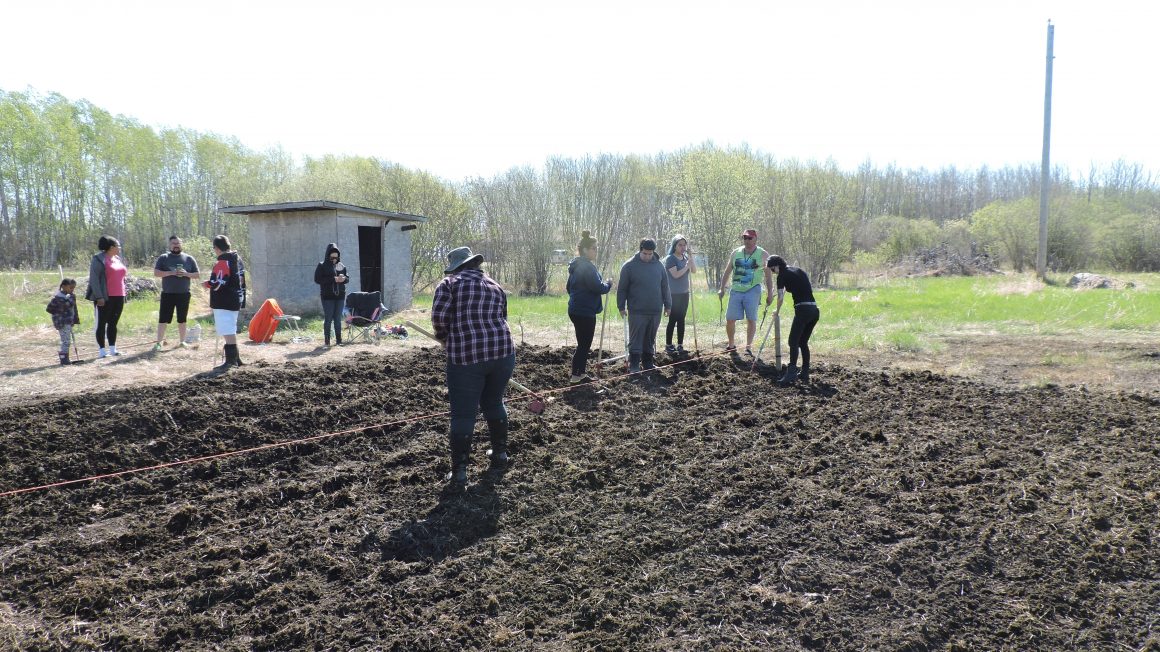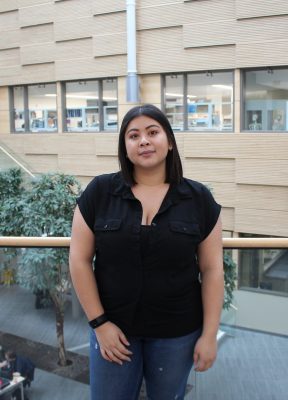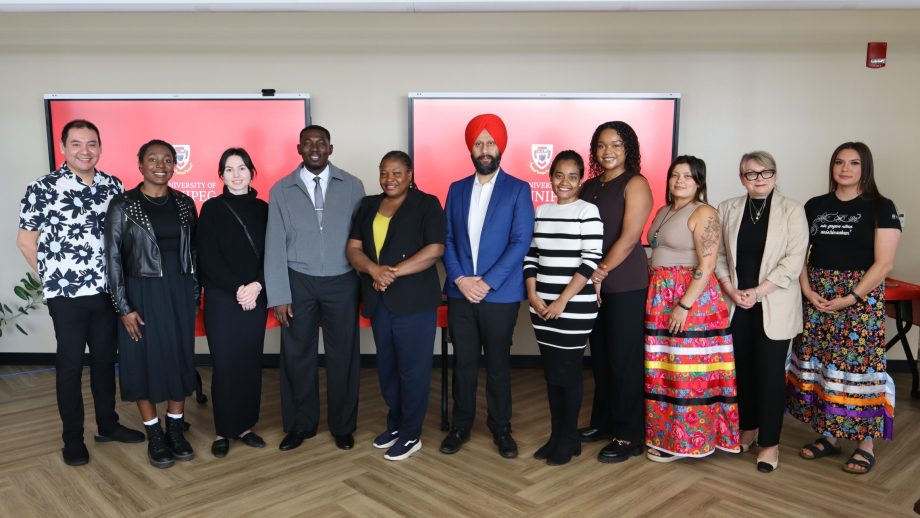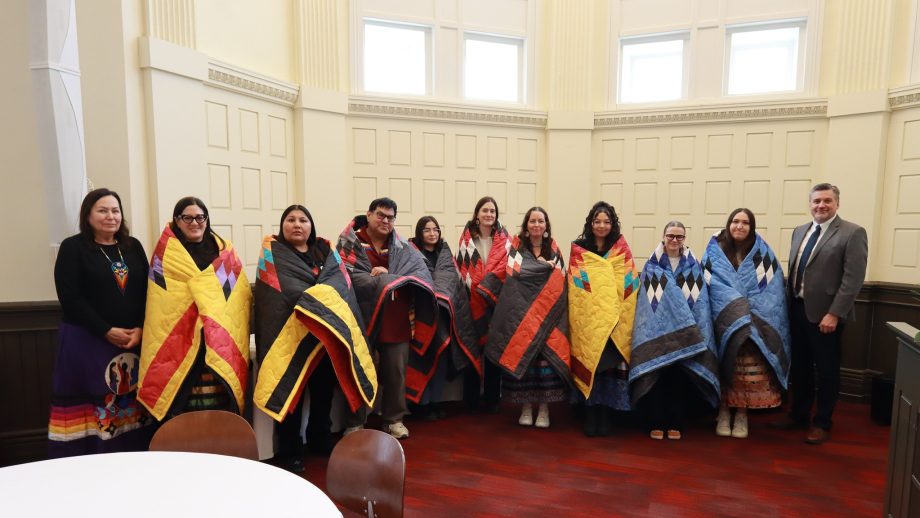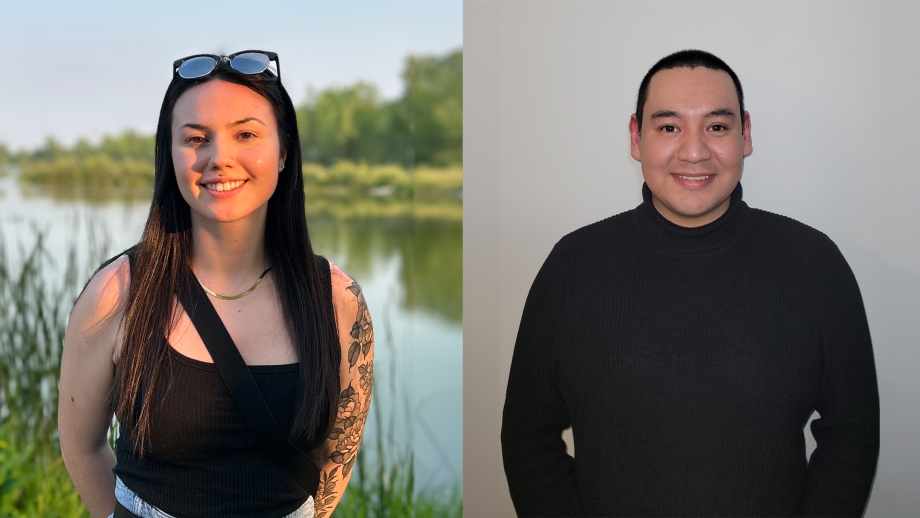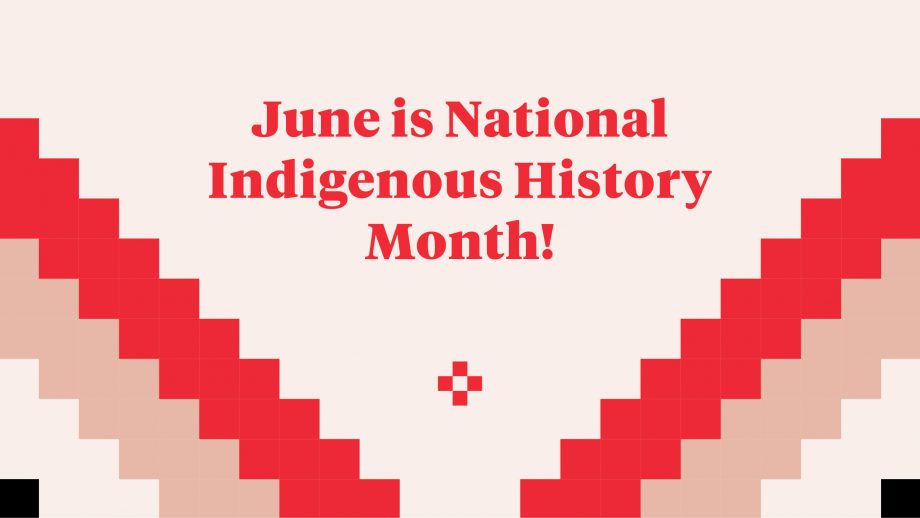Taylor Wilson’s paper, Decolonizing Diets through Indigenous-focused Food Guides, has recently been published in the Journal of Agriculture, Food Systems, and Community Development.
Her research comes in response to the latest Canadian Food Guide, which was launched in January 2019 with a promise to be inclusive of multicultural diets and diverse perspectives on food, including the food systems of Indigenous communities.
Wilson’s paper is the result of a project she developed with Dr. Shailesh Shukla during her Master’s in Development Practice: Indigenous Development. Their research examines the scope and limitations of the most recent Canadian food guide and the opportunity to decolonize it.
“Taylor has a strong passion, genuine interest, and excellent research potential,” said Shukla. “Her continued commitment to Indigenous food systems and health sovereignty issues is truly inspiring for young students from Indigenous communities.”
Improving community nutrition with Indigenous-led guidelines
Some scholars argue that federally designed standard food guides fail to address the myriad and complex issues of food security, well-being, and nutritional needs of Canadian Indigenous communities while imposing a dominant and westernized worldview of food and nutrition.
In a parallel development, Indigenous food systems and associated knowledges and perspectives are being rediscovered as a way to improve current and future food security.
Based on a review of relevant literature and long-term collaborative learning and community-based research engagements, Wilson and Shukla propose that Indigenous communities should develop their own food guides considering the community’s specific contexts, needs, and preferences.
An Indigenous Food Guide will improve Indigenous health and development intervention in an era of reconciliation.
Dr. Shailesh Shukla
“Our research supports Indigenous-led and community-based resurgence and decolonization of food guides,” said Wilson.
“We propose to design and pilot-test a personalized Indigenous food guide in the Fisher River Cree Nation, as a community-based case study to demonstrate its impact,” she said.
The University of Winnipeg has been working with the Fisher River Cree Nation for many years. With funding from a SSHRC Insight Development Grant, Shukla recently worked with Fisher River Cree Nation to publish an English-Cree cookbook filled with recipes, teachings, and stories of traditional foods and its importance in improving the health and well-being of the community.
“This research will empirically establish, and generate new scholarly understanding of, food security and health promotion policies,” said Shukla. “An Indigenous Food Guide will improve Indigenous health and development intervention in an era of reconciliation when conventional approaches are being reviewed and reformulated.”
Food sovereignty research recognized with Best Paper Award
Wilson has also been awarded an International Conference on Sustainable Development Best Paper Award for Land Sovereignty and Food Rights: Looking Back and Moving Forward for Indigenous Peoples in Canada, which she wrote in a course with Dr. Gabriel Nemoga.
She graduated with a Master’s in Development Practice, Indigenous Development in October 2020. She also holds a Bachelor of Arts in Cultural Anthropology and a Bachelor of Arts in Conflict Resolution. She currently teaches introductory courses at UWinnipeg and is also working as a project coordinator at the Winnipeg Boldness Project.
During her degree, she had opportunities to present at multiple conferences and participate in three-minute thesis competitions. A highlight was the chance to travel to Adelaide, South Australia to conduct research at the South Australian Health and Medical Research Institute. She participated in the Indigenous Summer Scholars Program in 2019, and served as a graduate student mentor for the 2020 cohort.
She is very proud of her successes.
“As an Indigenous and Filipino woman in academia, this recognition is important,” she said. “I think moving forward, having these experiences under my belt has just made me that much more excited and certain that I am in the right field.”

